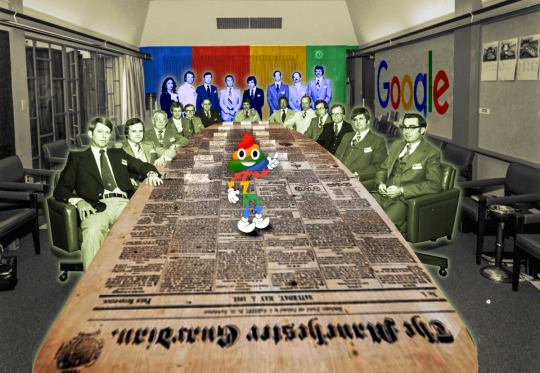#digital tax
Explore tagged Tumblr posts
Text
भारत सरकार का बड़ा कदम: इक्वलाइजेशन लेवी हटाने का प्रस्ताव, ट्रंप के रेसिप्रोकल टैरिफ से बचने की तैयारी
Delhi News: अमेरिकी राष्ट्रपति डोनाल्ड ट्रंप ने 2 अप्रैल 2025 से भारत सहित कई देशों पर रेसिप्रोकल टैरिफ लगाने की चेतावनी दी है। इससे पहले भारत सरकार ने एक महत्वपूर्ण कदम उठाने की योजना बनाई है। सरकार ऑनलाइन विज्ञापन सेवाओं पर लगने वाली 6% इक्वलाइजेशन लेवी को हटाने का प्रस्ताव लेकर आई है। इस लेवी को आमतौर पर ‘Google Tax’ के नाम से जाना जाता है और यह Google, Meta जैसी विदेशी टेक कंपनियों पर लागू…
#Digital Tax#Donald Trump#Equalization Levy#Google Tax#India-US Trade#Nirmala Sitharaman#reciprocal tariff#Tax Relief#Trade Agreement#US Tech Companies
0 notes
Text
Making Tax Digital for Income Tax Self Assessment

As the UK Government continues to move towards a more digitalised tax system, the Making Tax Digital (MTD) initiative has become essential for individuals and businesses alike, especially for those managing Income Tax Self Assessment (ITSA). MTD for ITSA represents a major step in transforming the UK's tax processes, aiming to simplify tax submissions, reduce errors, and ensure accurate reporting.
What is Making Tax Digital (MTD) for Income Tax Self Assessment?
Making Tax Digital is a government-led programme to modernise the tax system, transitioning from paper-based filings to a fully digital process. Introduced by HM Revenue and Customs (HMRC), the goal of MTD is to reduce human error, ensure transparency, and make it easier for taxpayers to keep on top of their obligations.
MTD for Income Tax Self Assessment specifically targets taxpayers who fall under the self-assessment system and meet certain income thresholds. This includes:
Self-employed individuals
Landlords
Partners in partnerships
Under MTD, taxpayers must use compatible software to maintain digital records and submit tax information to HMRC on a quarterly basis. This new approach provides both taxpayers and HMRC with a more frequent and accurate view of tax positions, reducing the risk of mistakes and streamlining the overall process.
Who Needs to Comply with MTD for Income Tax Self Assessment?
Not all self-assessment taxpayers are required to adhere to MTD guidelines. As of the current regulations, MTD for ITSA applies to:
Self-employed individuals and landlords with a gross income of £10,000 or more from self-employment or property income.
Partnerships that fall under the specified income threshold, with plans to include additional categories in the future.
These requirements are part of a phased rollout, meaning some taxpayers may be eligible for deferral, or exemptions if they fall under specific circumstances, such as age or religious grounds.
Note: The threshold amount and the eligibility rules are subject to change, so it’s crucial to keep updated on HMRC’s latest announcements.
What Are the Key Requirements Under MTD for ITSA?
To comply with MTD for Income Tax Self Assessment, eligible taxpayers must adhere to the following guidelines:
1. Digital Record-Keeping
One of the fundamental aspects of MTD is the requirement to maintain digital records. This involves using MTD-compatible software to record business income and expenses accurately. It replaces the traditional paper-based approach, requiring taxpayers to enter data electronically, ensuring consistency and reliability.
2. Quarterly Reporting
Instead of an annual tax return, MTD for ITSA requires taxpayers to submit quarterly updates to HMRC. This is designed to offer a more up-to-date view of your tax obligations, with quarterly submissions due as follows:
Quarter 1: 5 April to 5 July
Quarter 2: 6 July to 5 October
Quarter 3: 6 October to 5 January
Quarter 4: 6 January to 5 April
The quarterly updates include a summary of income and expenses, giving a snapshot of how much tax may be owed throughout the tax year. After the final quarterly report, taxpayers submit an End of Period Statement (EOPS) to finalise income and expenses.
3. End of Period Statement (EOPS)
The End of Period Statement is a critical part of the MTD process, enabling taxpayers to review and correct any inaccuracies in their digital records. After the quarterly updates, taxpayers file an EOPS for each source of income by 31 January following the tax year-end, ensuring that income and expenses are accurately reflected.
4. Final Declaration
The final step in the MTD for ITSA process is the Final Declaration. This submission replaces the traditional self-assessment tax return, summarising all earnings and taxes for the year. The Final Declaration is also due by 31 January following the end of the tax year.
Benefits of Making Tax Digital for Income Tax Self Assessment
While adapting to MTD may seem challenging, the transition offers significant benefits:
Reduced Errors and Improved Accuracy: Using digital software minimises human errors and ensures accuracy in reporting.
Better Financial Planning: With quarterly updates, taxpayers have a clearer view of their tax liabilities, facilitating better budgeting.
Streamlined Process: Digital record-keeping and automated submissions simplify the tax process, reducing the time and resources needed to stay compliant.
MTD for ITSA: Key Dates and Deadlines
Staying aware of the key dates associated with MTD for ITSA is essential:
Quarterly Reporting: Each quarter has a submission deadline within one month of the quarter’s end.
End of Period Statement (EOPS): Due by 31 January following the end of the tax year.
Final Declaration: Also due by 31 January after the tax year-end.
Failure to comply with these deadlines may result in penalties, so make use of software features or other tools to keep reminders for each milestone.
Final Thoughts on Making Tax Digital for ITSA
Making Tax Digital for Income Tax Self Assessment represents a significant change for the UK’s tax system, making it more efficient, transparent, and user-friendly. By embracing digital record-keeping, timely reporting, and MTD-compatible software, taxpayers can simplify the process, reduce errors, and maintain better control over their tax obligations. Taking proactive steps to transition to MTD for ITSA now can save time and avoid issues in the long run. Payroll Outsourcing
#income tax#digital tax#self assessment#making tax digital#financial#new blog#artists on tumblr#tumblr blog
0 notes
Text

do your best, deku-sensei!!!
#he pays taxes now#mha 430#mha spoilers#mha#bnha#deku#izuku midoriya#my art#digital art#digital illustration#my hero academia
7K notes
·
View notes
Note
In Babybee AU how Autobots is doing with bee meets each other are they going be okay for him?
I'm not sure what you're asking- But yes. In the BabyBee au the autobots are doing a good job at taking care of him... Eventually.
If you're asking how he reacts to them- well he's happy to see a lot of different bots! Though he is now very aware he is 'Accidentally stomped on' height.

I just think Ultra Magnus rarely looks down- but after this he has a presentation about the importance of looking where you walk. Especially since this ISN'T THE FIRST TIME HE'S BEEN STEPPED ON. He also tries to make B-127 more visible but He's already bright yellow... So he puts a balloon on him.

Ultra Magnus takes safety very seriously.
#ultra magnus#transformers one#digital art#bumblebee#awsering messages#babybee au#I think they're unlikely friends#Optimus and Magnus are friends too-#He's the serious uncle#that's actually super good with kids somehow#like he would be talking about taxes or something and Bee just nods#Uncle Magnus is canon
2K notes
·
View notes
Text
The Law Bytes Podcast, Episode 176: A Mid-Summer Update on Bills C-11, C-18, the Government’s Cabinet Shuffle, and the Brewing Battle over Digital Taxes
Coming off a week in which the government engineered a major cabinet overhaul that saw Heritage Minister Pablo Rodriguez replaced by Pascale St-Onge, an escalation of the battle over digital stales taxes, and which featured significant news on both the Bill C-11 and Bill C-18 fronts, this week’s Law Bytes podcast provides a mid-summer update on recent developments. Barring some urgent news, the…

View On WordPress
0 notes
Text

this song has been stuck in my mind for several months tbh. everyone check out MAL DU PAYS (Monophobia) by @starvingnarcissistmusic (sorry for the tag) . its awesome. does a cool pose.
edit: as someone, who had thsi song stuck in my head for month i still somehow managed to get the lyrics wrong. electric chair for op (me). it's supposed to be '"if nowhere is home". oh well XD
#yes the song is about mdp. and yes its siffrin on the art. dont worry about it.#isat spoilers#isat#in stars and time#isat fanart#digital art#isat siffrin#starlooping drawing tag#i didnt die btw its a bold faced lie told by uh. the. haters. to make me pay taxes. or something 👍#yeah nope its just our hyperfix has shifted a bit so we're currently neck deep in the undertale. yk. the usual.#uh if youre really curious ig you could ask for the url of a blog we currently occupy but be prepared if we say no#ANYWAY#hm. i should also add the eyestrain tag#eyestrain#yeagh i think thatse it. ciao im gonna dunk muself in the skeleton soip again. goodbye you will not see me for the next ten years /j
686 notes
·
View notes
Text

564 notes
·
View notes
Text

Au where they escape the circus: Pomni tries to teach the 22 year olds how to do taxes. It goes as well as expected with Jax & Zooble
(Please click for better quality!!)
#drag's art#tadc#the amazing digital circus#tadc fanart#tadc pomni#tadc jax#tadc zooble#pomni#jax#zooble#this has lived in my mind rent free. for a year.#and I’m only now drawing it LOL#is the jumper zooble is wearing one of gangle’s?? you decide ✨#the one and only time anyone has seen them cry was over taxes according to me#anyways I’m Irish idk how filing taxes works. don’t yell at me
535 notes
·
View notes
Text

The wild robot!
(I need more fics of them being a chaotic cute family)
#was gonna be more rendered but my iPad is old and screams if I do more then two layers#roz the wild robot#the wild robot fanart#the wild robot#fink the fox#fink the wild robot#brightbill#Digital art#artists on tumblr#PLEASE GIVE ME FIC RECS ON FINK BEING A DAD AND HIM AND ROZ BEING A DISASTER PLATONIC COUPLE MARRIED FOR TAXS BENEFITS#I’ll remake something similar in watercolors eventually
645 notes
·
View notes
Text


LOSER! LOSER! LOSER! LOSER!
#total drama#td mal#mal td#total drama fanart#mal total drama#tdi#artwork#digital artist#digital art#stupid#dumb shit#im hilarious#my humor is peak#taxes
160 notes
·
View notes
Text
There's probably some severed finger or body part in there N definitely doesn't know that isn't a normal gift

#glitch productions#murder drones#the amazing digital circus#Tadc#jax the amazing digital circus#The amazing digital circus Jax#Tax tadc#Tadc jax#N md#N murder drones#Murder drones n#Md n#Lina rambles
235 notes
·
View notes
Text
UK publishers suing Google for $17.4b over rigged ad markets

THIS WEEKEND (June 7–9), I'm in AMHERST, NEW YORK to keynote the 25th Annual Media Ecology Association Convention and accept the Neil Postman Award for Career Achievement in Public Intellectual Activity.

Look, no one wants to kick Big Tech to the curb more than I do, but, also: it's good that Google indexes the news so people can find it, and it's good that Facebook provides forums where people can talk about the news.
It's not news if you can't find it. It's not news if you can't talk about it. We don't call information you can't find or discuss "news" – we call it "secrets."
And yet, the most popular – and widely deployed – anti-Big Tech tactic promulgated by the news industry and supported by many of my fellow trustbusters is premised on making Big Tech pay to index the news and/or provide a forum to discuss news articles. These "news bargaining codes" (or, less charitably, "link taxes") have been mooted or introduced in the EU, France, Spain, Australia, and Canada. There are proposals to introduce these in the US (through the JCPA) and in California (the CJPA).
These US bills are probably dead on arrival, for reasons that can be easily understood by the Canadian experience with them. After Canada introduced Bill C-18 – its own news bargaining code – Meta did exactly what it had done in many other places where this had been tried: blocked all news from Facebook, Instagram, Threads, and other Meta properties.
This has been a disaster for the news industry and a disaster for Canadians' ability to discuss the news. Oh, it makes Meta look like assholes, too, but Meta is the poster child for "too big to care" and is palpably indifferent to the PR costs of this boycott.
Frustrated lawmakers are now trying to figure out what to do next. The most common proposal is to order Meta to carry the news. Canadians should be worried about this, because the next government will almost certainly be helmed by the far-right conspiratorialist culture warrior Pierre Poilievre, who will doubtless use this power to order Facebook to platform "news sites" to give prominence to Canada's rotten bushel of crypto-fascist (and openly fascist) "news" sites.
Americans should worry about this too. A Donald Trump 2028 presidency combined with a must-carry rule for news would see Trump's cabinet appointees deciding what is (and is not) news, and ordering large social media platforms to cram the Daily Caller (or, you know, the Daily Stormer) into our eyeballs.
But there's another, more fundamental reason that must-carry is incompatible with the American system: the First Amendment. The government simply can't issue a blanket legal order to platforms requiring them to carry certain speech. They can strongly encourage it. A court can order limited compelled speech (say, a retraction following a finding of libel). Under emergency conditions, the government might be able to compel the transmission of urgent messages. But there's just no way the First Amendment can be squared with a blanket, ongoing order issued by the government to communications platforms requiring them to reproduce, and make available, everything published by some collection of their favorite news outlets.
This might also be illegal in Canada, but it's harder to be definitive. The Canadian Charter of Rights and Freedoms was enshrined in 1982, and Canada's Supreme Court is still figuring out what it means. Section Two of the Charter enshrines a free expression right, but it's worded in less absolute terms than the First Amendment, and that's deliberate. During the debate over the wording of the Charter, Canadian scholars and policymakers specifically invoked problems with First Amendment absolutism and tried to chart a middle course between strong protections for free expression and problems with the First Amendment's brook-no-exceptions language.
So maybe Canada's Supreme Court would find a must-carry order to Meta to be a violation of the Charter, but it's hard to say for sure. The Charter is both young and ambiguous, so it's harder to be definitive about what it would say about this hypothetical. But when it comes to the US and the First Amendment, that's categorically untrue. The US Constitution is centuries older than the Canadian Charter, and the First Amendment is extremely definitive, and there are reams of precedent interpreting it. The JPCA and CJPA are totally incompatible with the US Constitution. Passing them isn't as silly as passing a law declaring that Pi equals three or that water isn't wet, but it's in the neighborhood.
But all that isn't to say that the news industry shouldn't be attacking Big Tech. Far from it. Big Tech compulsively steals from the news!
But what Big Tech steals from the news isn't content.
It's money.
Big Tech steals money from the news. Take social media: when a news outlet invests in building a subscriber base on a social media platform, they're giving that platform a stick to beat them with. The more subscribers you have on social media, the more you'll be willing to pay to reach those subscribers, and the more incentive there is for the platform to suppress the reach of your articles unless you pay to "boost" your content.
This is plainly fraudulent. When I sign up to follow a news outlet on a social media site, I'm telling the platform to show me the things the news outlet publishes. When the platform uses that subscription as the basis for a blackmail plot, holding my desire to read the news to ransom, they are breaking their implied promise to me to show me the things I asked to see:
https://www.eff.org/deeplinks/2023/06/save-news-we-need-end-end-web
This is stealing money from the news. It's the definition of an "unfair method of competition." Article 5 of the Federal Trade Commission Act gives the FTC the power to step in and ban this practice, and they should:
https://pluralistic.net/2023/01/10/the-courage-to-govern/#whos-in-charge
Big Tech also steals money from the news via the App Tax: the 30% rake that the mobile OS duopoly (Apple/Google) requires for every in-app purchase (Apple/Google also have policies that punish app vendors who take you to the web to make payments without paying the App Tax). 30% out of every subscriber dollar sent via an app is highway robbery! By contrast, the hyperconcentrated, price-gouging payment processing cartel charges 2-5% – about a tenth of the Big Tech tax. This is Big Tech stealing money from the news:
https://www.eff.org/deeplinks/2023/06/save-news-we-must-open-app-stores
Finally, Big Tech steals money by monopolizing the ad market. The Google-Meta ad duopoly takes 51% out of every ad-dollar spent. The historic share going to advertising "intermediaries" is 10-15%. In other words, Google/Meta cornered the market on ads and then tripled the bite they were taking out of publishers' advertising revenue. They even have an illegal, collusive arrangement to rig this market, codenamed "Jedi Blue":
https://en.wikipedia.org/wiki/Jedi_Blue
There's two ways to unrig the ad market, and we should do both of them.
First, we should trustbust both Google and Meta and force them to sell off parts of their advertising businesses. Currently, both Google and Meta operate a "full stack" of ad services. They have an arm that represents advertisers buying space for ads. Another arm represents publishers selling space to advertisers. A third arm operates the marketplace where these sales take place. All three arms collect fees. On top of that: Google/Meta are both publishers and advertisers, competing with their own customers!
This is as if you were in court for a divorce and you discovered that the same lawyer representing your soon-to-be ex was also representing you…while serving as the judge…and trying to match with you both on Tinder. It shouldn't surprise you if at the end of that divorce, the court ruled that the family home should go to the lawyer.
So yeah, we should break up ad-tech:
https://www.eff.org/deeplinks/2023/05/save-news-we-must-shatter-ad-tech
Also: we should ban surveillance advertising. Surveillance advertising gives ad-tech companies a permanent advantage over publishers. Ad-tech will always know more about readers' behavior than publishers do, because Big Tech engages in continuous, highly invasive surveillance of every internet user in the world. Surveillance ads perform a little better than "content-based ads" (ads sold based on the content of a web-page, not the behavior of the person looking at the page), but publishers will always know more about their content than ad-tech does. That means that even if content-based ads command a slightly lower price than surveillance ads, a much larger share of that payment will go to publishers:
https://www.eff.org/deeplinks/2023/05/save-news-we-must-ban-surveillance-advertising
Banning surveillance advertising isn't just good business, it's good politics. The potential coalition for banning surveillance ads is everyone who is harmed by commercial surveillance. That's a coalition that's orders of magnitude larger than the pool of people who merely care about fairness in the ad/news industries. It's everyone who's worried about their grandparents being brainwashed on Facebook, or their teens becoming anorexic because of Instagram. It includes people angry about deepfake porn, and people angry about Black Lives Matter protesters' identities being handed to the cops by Google (see also: Jan 6 insurrectionists).
It also includes everyone who discovers that they're paying higher prices because a vendor is using surveillance data to determine how much they'll pay – like when McDonald's raises the price of your "meal deal" on your payday, based on the assumption that you will spend more when your bank account is at its highest monthly level:
https://pluralistic.net/2024/06/05/your-price-named/#privacy-first-again
Attacking Big Tech for stealing money is much smarter than pretending that the problem is Big Tech stealing content. We want Big Tech to make the news easy to find and discuss. We just want them to stop pocketing 30 cents out of every subscriber dollar and 51 cents out of ever ad dollar, and ransoming subscribers' social media subscriptions to extort publishers.
And there's amazing news on this front: a consortium of UK web-publishers called Ad Tech Collective Action has just triumphed in a high-stakes proceeding, and can now go ahead with a suit against Google, seeking damages of GBP13.6b ($17.4b) for the rigged ad-tech market:
https://www.reuters.com/technology/17-bln-uk-adtech-lawsuit-against-google-can-go-ahead-tribunal-rules-2024-06-05/
The ruling, from the Competition Appeal Tribunal, paves the way for a frontal assault on the thing Big Tech actually steals from publishers: money, not content.
This is exactly what publishing should be doing. Targeting the method by which tech steals from the news is a benefit to all kinds of news organizations, including the independent, journalist-owned publishers that are doing the best news work today. These independents do not have the same interests as corporate news, which is dominated by hedge funds and private equity raiders, who have spent decades buying up and hollowing out news outlets, and blaming the resulting decline in readership and profits on Craiglist.
You can read more about Big Finance's raid on the news in Margot Susca's Hedged: How Private Investment Funds Helped Destroy American Newspapers and Undermine Democracy:
https://www.press.uillinois.edu/books/?id=p087561
You can also watch/listen to Adam Conover's excellent interview with Susca:
https://www.youtube.com/watch?v=N21YfWy0-bA
Frankly, the looters and billionaires who bought and gutted our great papers are no more interested in the health of the news industry or democracy than Big Tech is. We should care about the news and the workers who produce the news, not the profits of the hedge-funds that own the news. An assault on Big Tech's monetary theft levels the playing field, making it easier for news workers and indies to compete directly with financialized news outlets and billionaire playthings, by letting indies keep more of every ad-dollar and more of every subscriber-dollar – and to reach their subscribers without paying ransom to social media.
Ending monetary theft – rather than licensing news search and discussion – is something that workers are far more interested in than their bosses. Any time you see workers and their bosses on the same side as a fight against Big Tech, you should look more closely. Bosses are not on their workers' side. If bosses get more money out of Big Tech, they will not share those gains with workers unless someone forces them to.
That's where antitrust comes in. Antitrust is designed to strike at power, and enforcers have broad authority to blunt the power of corporate juggernauts. Remember Article 5 of the FTC Act, the one that lets the FTC block "unfair methods of competition?" FTC Chair Lina Khan has proposed using it to regulate training AI, specifically to craft rules that address the labor and privacy issues with AI:
https://www.youtube.com/watch?v=3mh8Z5pcJpg
This is an approach that can put creative workers where they belong, in a coalition with other workers, rather than with their bosses. The copyright approach to curbing AI training is beloved of the same media companies that are eagerly screwing their workers. If we manage to make copyright – a transferrable right that a worker can be forced to turn over their employer – into the system that regulates AI training, it won't stop training. It'll just trigger every entertainment company changing their boilerplate contract so that creative workers have to sign over their AI rights or be shown the door:
https://pluralistic.net/2024/05/13/spooky-action-at-a-close-up/#invisible-hand
Then those same entertainment and news companies will train AI models and try to fire most of their workers and slash the pay of the remainder using those models' output. Using copyright to regulate AI training makes changes to who gets to benefit from workers' misery, shifting some of our stolen wages from AI companies to entertainment companies. But it won't stop them from ruining our lives.
By contrast, focusing on actual labor rights – say, through an FTCA 5 rulemaking – has the potential to protect those rights from all parties, and puts us on the same side as call-center workers, train drivers, radiologists and anyone else whose wages are being targeted by AI companies and their customers.
Policy fights are a recurring monkey's paw nightmare in which we try to do something to fight corruption and bullying, only to be outmaneuvered by corrupt bullies. Making good policy is no guarantee of a good outcome, but it sure helps – and good policy starts with targeting the thing you want to fix. If we're worried that news is being financially starved by Big Tech, then we should go after the money, not the links.

If you'd like an essay-formatted version of this post to read or share, here's a link to it on pluralistic.net, my surveillance-free, ad-free, tracker-free blog:
https://pluralistic.net/2024/06/06/stealing-money-not-content/#content-free
#pluralistic#competition#advertising#surveillance advertising#saving the news from big tech#link taxes#trustbusting#competition and markets authority#uk#ukpoli#Ad Tech Collective Action#digital markets unit#Competition Appeal Tribunal
586 notes
·
View notes
Text






Update to the key/door set up for Jax.
#tadc#the amazing digital circus#jax#tadc jax#I admit the pin bg and being asked about a door is stretching a little#but what else am i gonna do with thoughts THINK ABOUT TAXES??
168 notes
·
View notes
Text

Can't neglect the dog sketches forever, so here's
Day 17 - Norwegian Lundehund
This felt pretty tricky (these dogs are SO unique) and I was actually dreading it a little bit which may be the reason I procrastinated on it 😅 but surprisingly, it still only took 2.5 hours in the end.
#digital#pet portrait#sketch#norwegian lundehund#these sketches are indeed more taxing on my brain though#which kind of sounds counterintuitive at first?#you'd think just copying a photo would be easier than actually making things up from scratch#but it seems it's the other way around#at least for me#or at least currently?#I guess it's the constant checking and comparing#doggust#DOGgustembtober
188 notes
·
View notes
Text
lowkey after like a week and a half of doing mild research into media archives I believe that most old tv should be public domain by default, considering studio execs were basically wiping their asses with the tapes but now want to posture about their copyright when it's a miracle from heaven any of the footage from that era exists
#me: are you going to sell me a dvd with your copyrighted content#big studios: no#me: are you going to put your content on your personal company streaming service#big studios: also no#me: can you let the archives you've donated your stuff to digitize it and host it online requiring you to do nothing#big studios: definitely not#me: can i at least pay the library of congress an ungodly amount of money for one (1) dvd for my own use of a 20 minute program#big studios: no it's copyrighted <3#plaster this with a big disclaimer that I don't necessarily understand much of copyright law and it gets complicated especially with#dramatic anthologies that were produced under actors unions' agreements that this was a live-taped performance and would never be seen agai#but I don't see how the current situation benefits the artists to be quite honest.#most of them are no longer with us and those that are might like to see some of their old work as well .. just a thought.#when i'm president every streaming service will be required to match the production costs of every slop show they produce that#ends up cancelled after 5 episodes and written off for tax purposes#with an equal donation to digitizing and hosting film and television archives
75 notes
·
View notes
Text
I'm opening commissions!

10 slots!!!
Bust shots - $100 USD per character Half Body - $125 per character Full Body - $150 per character Simple BG included!
Examples of my art:





I also do Digital paintings, Animations, Comic pages, and Character design!
If you're interested, you can inquire for a quote




Feel free to DM me or email me at [email protected] with inquiries!
Thank you!
#commissions open#digital art#open commissions#art commissions#comms open#commission art#commissions#artists on tumblr#I'm so so so so so so so so SOOOO bad at making commission sheets..#BUT#it doesnt change. that my comms are open!!!#wahou#I need money LOL my poor bank account#taxes took like fucking 4k out my account and I havent been working so#grimace emoji#didnt think they would be that much#anyways#I'm also.#I have WAY too many things as options...#like.augh#I'm not specialized enough#cause my degree and work is basically 'doing anything'#like my job is to do the whole production pipeline myself#so if you wanna pay me to do any part of it I can do it all
249 notes
·
View notes